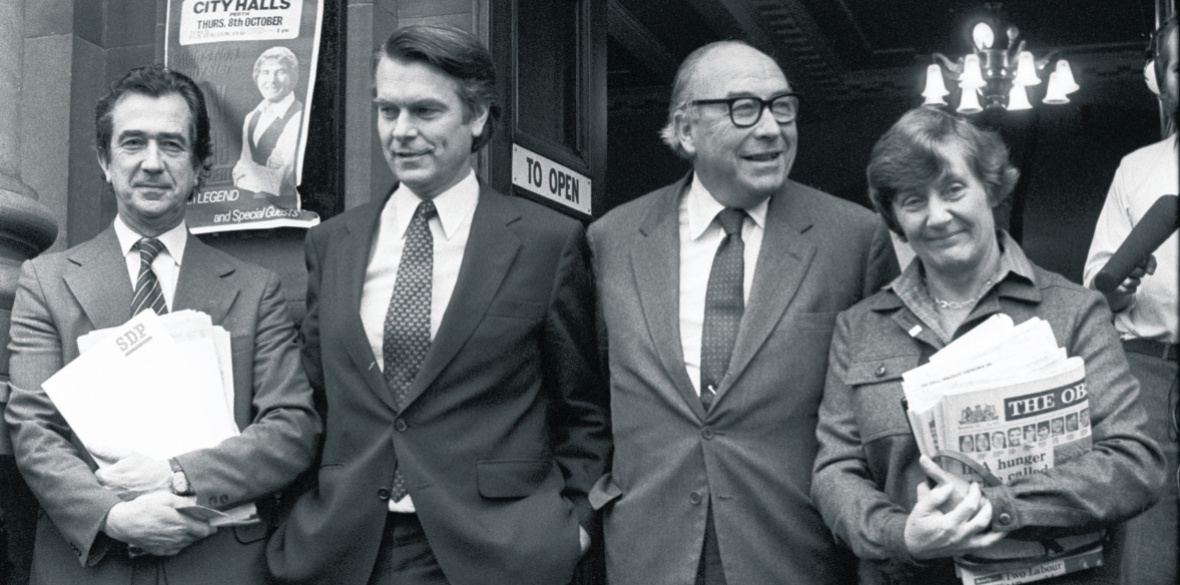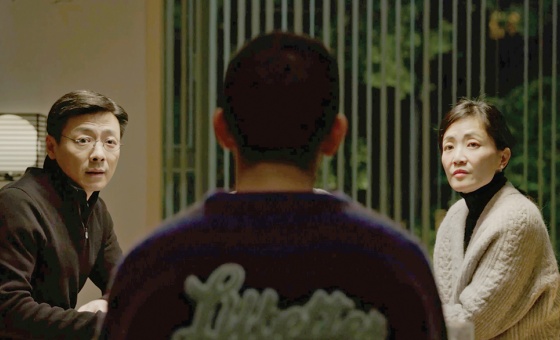This is the last article you can read this month
You can read more article this month
You can read more articles this month
Sorry your limit is up for this month
Reset on:
Please help support the Morning Star by subscribing here
SUMMER is often described as silly season in politics and this summer two very silly ideas have come to the fore with much talk of a new party to the right of the modern Labour Party and the formation of a so-called “national government.”
Neither phenomenon is new. The formation of the SDP breakaway from the Labour Party by Roy Jenkins, Shirley Williams, David Owen and Bill Rodgers in 1981 was an anti-socialist betrayal that helped to gift the 1980s to Thatcherism and her brutal anti-working-class policies.
Ramsay MacDonald’s formation of a “national government” with the Conservatives, Liberals, Liberal Nationals and so-called “National Labour” in 1931 was done to push through austerity politics, guaranteeing that his name went down in history as a byword for betrayal.
There are some now proposing to repeat these historical tragedies.
In fact, some of those now proselytising for a new party to the right of the modern Labour Party or a so-called “national government” were involved in the SDP betrayal. The truth is, if they’d have been around in the 1930s they would have been probably part and parcel of MacDonald’s motley crew too.
In relation to the formation of a new political party, only this week, the Politico website reported: “You don’t have to spend long in Westminster before you hear someone talking about the possibility a new political party emerging in the UK.”
It went on to describe the dream that some have of such an enterprise.
“The idea, inspired by the rise of French President Emmanuel Macron’s successful En Marche movement, is usually pictured as a club of disillusioned social liberals drawn from across the political landscape — think Labour’s Chuka Umunna and David Miliband on stage with the Liberal Democrat Vince Cable and Conservative Remainers like Nicky Morgan and Anna Soubry, with a strategy overseen by veterans Tony Blair, Nick Clegg and George Osborne and communications by Peter Mandelson and Alastair Campbell.”
Those fantasising in the tea rooms of the Palace of Westminster about being the British Macron may be very disappointed to learn that Macron’s popularity has hit new lows — down 14 per cent on just a year ago. Barely one-third of the French population now back the former investment banker.
The notion of the formation of a new political party or a “national government” are two sides of the same coin, Indeed, the former could be the precursor to the latter.
In Parliament on July 10, the Liberal Democrats brought an opposition day motion which called for “a government of national unity.”
In the same month, when discussing dealing with the outcome of the EU referendum, long-serving Conservative Nicholas Soames told Channel 4 News that, “if I had my way, we would have a national government to deal with this. It is the most serious problem this country has faced since the war.”
Also in July, Conservative MP for Broxtowe and former government minister Anna Soubry made a similar call, saying: “I personally would abandon the Labour front bench and I would reach beyond it and I would encompass Plaid Cymru, the SNP and other sensible, pragmatic people who believe in putting this country’s interests first and foremost.”
Around the same time, top Tory — and former shadow secretary of state for justice and shadow home secretary — Dominic Grieve, albeit in more cautious language, made comments that were seen as supportive of this idea.
So it was no surprise when the trailer for the first interview with anti-Corbyn MP Jonathan Woodcock since his resignation from the Labour Party said: “Mr Woodcock is now standing as an independent. And he's calling for MPs of all sides to come together to form a new political party.”
Some in Labour have floated that idea too, even on the floor of the House of Commons.
We should be clear. A new party would be a desperate attempt to stop a radical Labour government. That would be its sole aim.
It would be an attempt to block robust opposition to the austerity policies that have wreaked havoc on our society and working-class lives since 2010.
Shadow home secretary Diane Abbott addressed the key point when she raised the question of “whose nation and whose interest?” a national government would serve.
She rightly stated: “The assumption behind national government is that the interests of a hedge fund manager in Mayfair are the same as a single parent in Hackney. But they are not. And the danger of a national government is that, inevitably, the interest of the poor and disadvantaged get marginalised.”
Putting to one side the exceptional circumstances of a national government having to come together to focus on defending our country when a hugely powerful fascist army was on our shores and planning invasion and slaughter, in non-comparable peacetime circumstances, a “national government” is simply a con trick.
It pretends that competing class interests do not exist, while working to uphold the interests of the powerful 1 per cent, whose system of free market fundamentalism has done so much damage to working people and their families.
A socialist Labour Party’s approach to the economy and governance is not, and cannot be, about pretending that the interests of “the 100 per cent” are always one and the same.
There is a reason that our manifesto was called For The Many Not the Few. It’s because we seek to govern on behalf of, and in partnership with, the vast majority whose interests, living standards and practical aspirations have been held back and hurt by governments who have practised class politics on behalf of the 1 per cent.
Whether it be a new political party breaking away from Labour or a “national government,” we should recognise it for what it is — a self-interested enterprise to block a Labour government coming to power.
This would be a betrayal not only of the almost 13 million people who voted Labour at the last general election and the up to 42 per cent of people who polls say intend to vote Labour at the next general election.
It would also be a betrayal of our duty to all of those who, regardless of their political views, have been held back by this appalling Conservative government.
Our party and movement — but most importantly the people we serve — don’t need any more people following the divisive and destructive path of “the Gang of Four” that founded the SDP.
Nor do we need any more Ramsay MacDonalds. We need more Keir Hardies. We need more Jeremy Corbyns.
We need more of all of those in our society who are prepared to stand up to the demands of capital and put the interests of the 99 per cent first.
Richard Burgon is shadow justice secretary. This column appears fortnightly.










